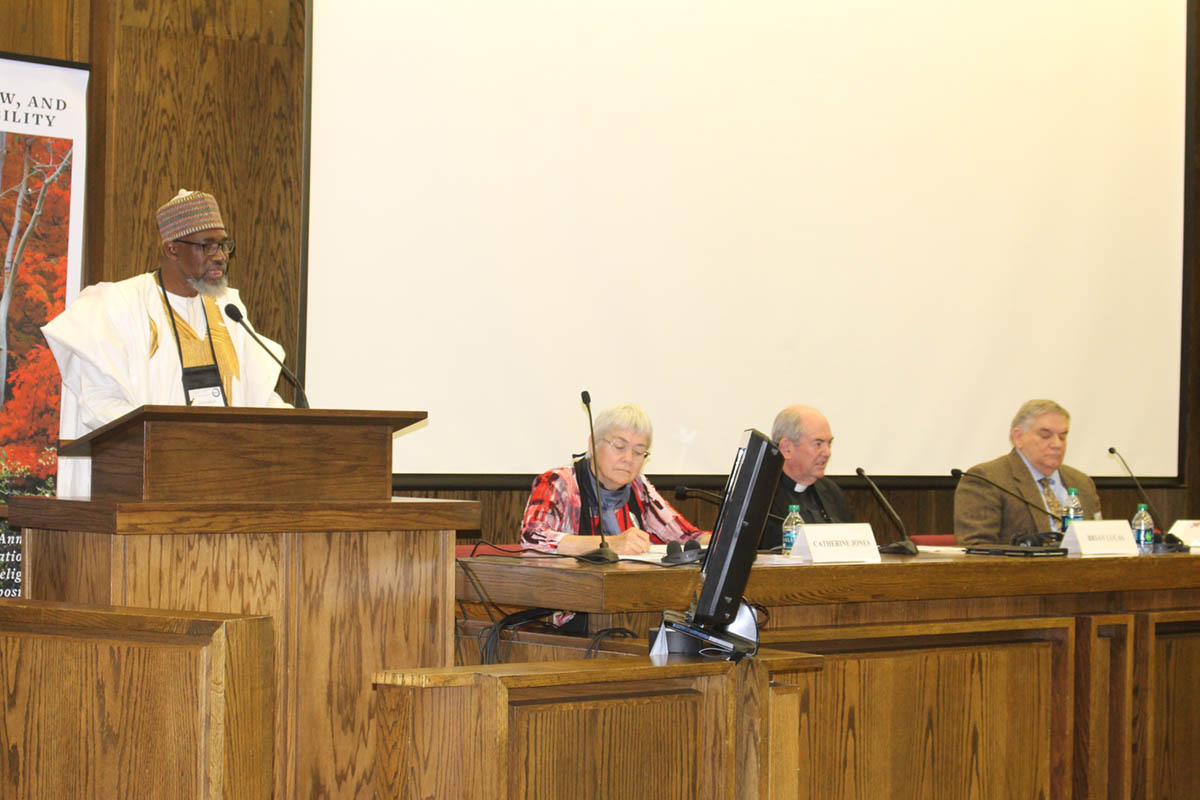Symposium 2015: Interreligious Cooperation, Religious Freedom, & Social Stability

Reported by Tara Fitzgerald
This session was moderated by James E. Faulconer, Richard L. Evans Professor of Philosophy, Brigham Young University. Speakers included Abdur-Rahman Ahmad, Sheik, Ansar-Ud-Deen Society of Africa, Nigeria; Brian Lucas, General Secretary, Australian Catholic Bishops Conference; Sister Catherine Jones, Chair, New Zealand Catholic Bishops Committee for Interfaith Relations.
Abdur-Rahman Ahmad opened his remarks by stating that religion is under siege. He declared that religious communities must come together and answer questions concerning the purpose and value of religion, otherwise secularism will “push[] religion and God to the edges.” People of different faiths must come to a mutual understanding and cooperate. Each is to remain true to their religious convictions while allowing others to express their faith freely. This is what the Nigerian Inter-Religious Council is set up to do, especially among Muslims and Christians.
Nigeria is a deeply religious country, but has suffered from extremism. Muslims and other faith communities have been working together, but this has unfortunately not led to the desired result of peace and harmony. This is primarily due to the fact that outbreaks of religious violence are more often tied to social, economic, and political reasons rather than religious reasons. Also, those who profess religion often have nothing to do with it. Nigeria recently experienced a divisive election, but people are now expressing that elections are about productivity and delivery of election promises, not religion. Faith communities in Nigeria universally agree that marriage is restricted between a man and a woman.
Brian Lucas identified current problems facing Australia as well as initiatives that are addressing these problems. One concern has been the polarization of Muslims. While there are groups seeking to oppose the building of mosques, there are also people seeking to build and foster dialogue. One example of this is a bishop who organized a football match to encourage good relations between Catholics and Muslims. There was a mix of Catholics and Muslims on each team, and the teams were named “harmony” and “peace.”
Same-sex marriage is another concern. While some take a liberal view, others take a conservative view. It is important to find a language that adequately respects the different perspectives. Mormons have taken the initiative to engage in a research project that identifies the contributions that religions make.
Sister Catherine Jones summarized New Zealand’s historical foundations, current practices and future challenges. The fourth article of the Treaty of Waitangi (1840)—the founding document of New Zealand—guarantees religious freedom. This article was designed to protect Catholics against Anglican and Protestant majority but now stands for religious freedom in general. Freedom of religious belief is also guaranteed by law (1990 Bill of Rights Act). The 2007 Statement on Religious Diversity published by the Human Rights commission that provides a basis for ongoing discussion of religious diversity and emphasizes equality is likewise noteworthy. While over half of New Zealanders identify themselves as Christian, recent years have shown a significant increase in non-Christian adherents.
Current collaboration forms are most visible in social services and practical projects. The picture is encouraging notwithstanding the religious freedom threats that face New Zealand today. These threats come in the form of bioethics, including the 2014 Redefinition of Marriage Act, the obligation on doctors and nurses to assist in abortion, and the End of Life Choice Bill; and social concerns, including a demand for 24-hour shopping, high rates of incarceration, and the welcome of refugees. “These challenges stress the need for all people of faith to work together to ensure that . . . the transcendent dignity of the human person in society is upheld.”